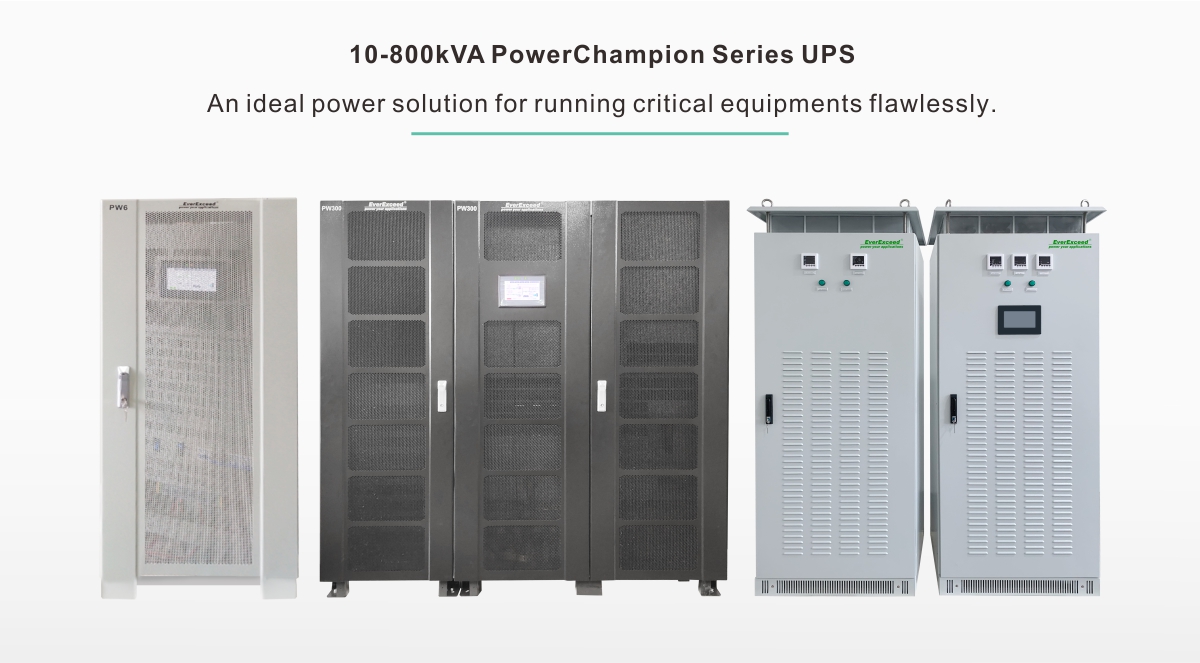Deep discharge generally refers to the discharge of about 80% of the rated capacity of the battery. The power UPS power battery must have some active substances sink after being used for a period of time. If the active substances are not activated in time, it is bound to have some impact on the capacity of the battery. Therefore, it is better to conduct a deep discharge of the battery every few months, which is conducive to extending the battery life. However, excessive deep discharge is not allowed, otherwise it will cause damage to the battery.

Most UPS power supplies have the highest efficiency when the load is 50%~100%. When the load is less than 50%, the efficiency drops sharply. Therefore, when the UPS operates with excessive light load, it is not economical. In addition, some users always believe that the lighter the load, the higher the reliability of the machine operation and the lower the failure rate. In fact, this concept is not comprehensive, because the light load can reduce the probability of damage to the final power tube, but it is extremely harmful to the battery. Because if the UPS power supply battery does not have a deep discharge protection system, it may cause excessive deep discharge of the battery and permanent damage to the battery when it is operated with excessive light load.
1. Long time low current discharge. As we all know, the capacity of UPS battery is closely related to the discharge current. The smaller the discharge current is, the more capacity it actually releases. Generally speaking, the discharge capacity of the battery must be controlled within 80% of the rated capacity. In other words, when the battery discharges 80% of the rated capacity, it is not allowed to continue discharging. If it continues to discharge, it will cause deep discharge of the UPS battery. If remedial measures are not taken in time, it may cause permanent damage to the battery.
2. Frequent discharge for a long time. Some units and regions may cause frequent discharge of UPS battery due to frequent mains power outages. If there is not enough time to charge the battery after it is discharged, and the second time it is discharged immediately, more times may cause deep discharge of the battery.
UPS has the minimum voltage protection value of the battery, but the terminal voltage of the battery is closely related to the size of the discharge current. If the discharge current is small, the terminal voltage will be high, and the more actual capacity will be released when the minimum protection value is reached. Therefore, the UPS running under light load should avoid the phenomenon of shutting down after discharging to the lowest protection value. For UPS with long time delay, the lower limit voltage protection value of discharge should be appropriately increased.
The battery with load discharging to low state must be recharged within 72 hours after the battery is discharged to avoid battery damage;
When the UPS power supply is idle, disconnect the connected battery, otherwise the connected UPS battery will be damaged due to over-discharge within a few days to a week. Therefore, when the UPS uninterruptible power supply is not used, disconnect the connecting line between the battery and the UPS power supply host;
Generally, UPS will design an alarm. When the voltage drops to close to the discharge termination voltage (when the voltage of a single section is close to 10.8 V), an alarm will sound. At this time, the electrical appliances should be turned off immediately and the UPS should be turned off. However, when the discharge termination voltage is reached, it will automatically stop to prevent over-discharge;
In fact, UPS power supply batteries have low requirements for heat and cold. As long as the room temperature is normal, too high will easily lead to the rise of battery temperature, damage to battery performance, and too low will easily reduce the activity, which will lead to poor battery acceptance, more charging and discharging times, and indirectly shorten the service life of electric vehicle batteries.
tags :
scan to wechat:everexceed
